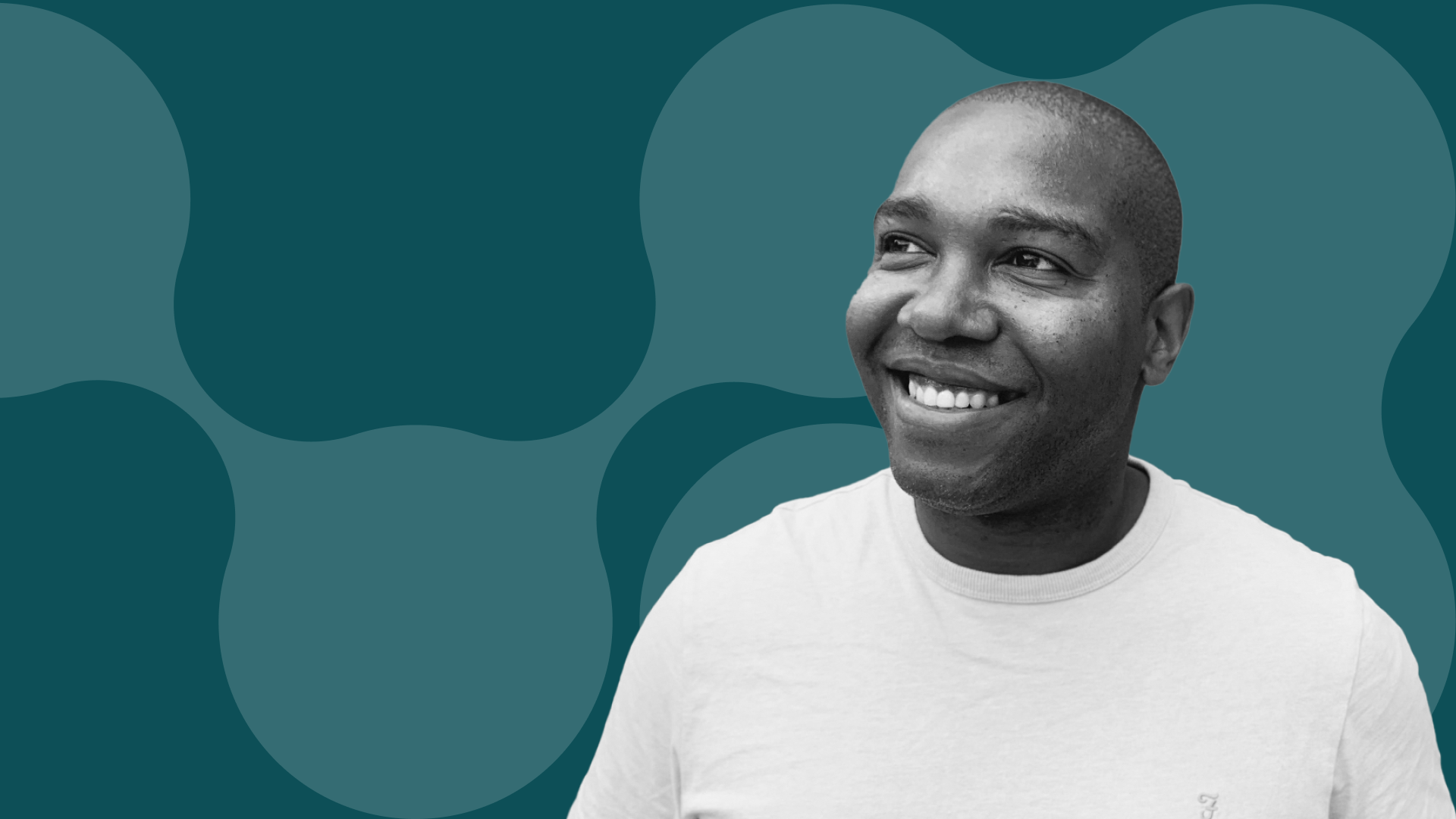How movie magic is transforming legal marketing with Simmons and Simmons’ Laura Klysz
Changemakers spotlights innovative B2B marketing leaders who are driving industry transformation, where we explore bold strategies, disruptive ideas and the power of marketing.

Tell us about yourself.
I'm Laura Klysz, Global Head of Marketing and Communications at Simmons and Simmons, an international law firm, known for its sector strategy and innovative approach. Within my role, I have a broad and interesting remit to raise the profile, position and protect the firm. I lead on creative, digital, brand, campaigns, events, internal communications, and PR. The icing on the top of that multi-layered cake is advising our senior leadership teams to have a strong voice in the market. Establishing their presence as prominent figures in the industry and to build their profile on topics that they're passionate about.
One of the main things I’m trying to achieve now is bringing more personality to the brand; that means a human approach to our social media, personable event experiences, relevant digital interfaces that are accessible, meaningful and connective communications, an inspirational market position, creatives that give you a ‘wow factor’…. I could go on!
We have an ambition to be a next-generation law firm. And a lot of people automatically assume that that means tech. But it’s how we can bring the human and the tech elements together, leading on trends and innovate solutions, and to focus on the strength of relationships that we hold. After all, we are a people-to-people business.
How do you see your role as a marketer in driving broader industry or sector change within your space?
The most powerful way to do that is through storytelling to reveal the crux of the human emotion that a particular piece of work or market update has evoked. Emphasising the twists and turns of the matter and the follow-on impacts, is far more memorable than a heavy legalease article or technical deal announcement. I'm curious and so always ask, "but why is this important, what does your audience need to know and what do we have to say? How did the team work together, what was new? What was the dynamic with the client? How is this going to shape industry? How does it impact the world around us?"
I think we've got a powerful role to play within broader market dynamics. When you think about the energy transition, think about smart cities for example, that's not just the corporate or the investor that you're working for. You've got regulators, industry bodies, multiple sectors and society in mind too, so creating messages that will appeal to a variety of stakeholders is essential. To reach a broader base of decision makers, and to influence positive impact, we should include the human side of the work that we do.
A lot of it comes down to building people up and giving them confidence to share an opinion and reveal that human side of themselves.
What's the most provocative idea or strategy that you've implemented in your B2B marketing and what was the response to that?
I have a recent example, in our ‘Year Ahead’ campaign, that’s been running for four years, and where we took a bold new direction for the 2025 edition. After analysing past predictions, we realised they were accurate but safe. This led to a challenge from our leadership to set ourselves apart as thought leaders. Thought leadership, to us, means daring to make bold predictions that inspire and start unique conversations. To engage our international lawyers creatively, we brainstormed ideas and drew inspiration from movies, leveraging film quotes and scenarios to spark innovative thinking and envisage a brave future.
We then homed in on science fiction utopian and dystopian scenarios. There's so much from cinema that has stretched our imaginations, and now we're seeing it become a reality for better or for worse. We landed on the idea of creating scenarios inspired by Hollywood films that were set in 2050 and assessed the likelihood of these storylines coming true.
We were inspired by Minority Report and how personalisation is already happening with retina scans and biometrics, and how platforms look for behavioural patterns. We talked about The Matrix and that famous line of "I know kung fu" - and that brain computer interfaces are being developed. Waterworld – was another inspiration - are we going to end up in that scenario if we don't get a handle on climate change and look after the planet? It felt like a cool way to get people thinking differently. And our senior leadership thought so too.
There were a few moments during the project where I wobbled and thought, “I don't know if I'm pushing too far with this concept." But it was when we started to get into the creative side of the campaign, holding group discussions and seeing how energised the teams were that it all started to fall into place. “We came up with our own scenarios, movie posters and green screen videos that mirrored interviews with actors or film producers. We even included a film clapperboard to add authenticity to our creative.”
I do remember one lawyer saying, "Laura, you're not going to add Terminator robots behind me on this video, are you?!" I think they asked me that because we weren’t following usual practice of how we would normally share legal insight. But we stood firm in the belief that we needed to grab attention and stand out in a crowded market. We were going all in with the concept and housed the content on an interactive platform that resembled a movie streaming site.
"We stood firm in the belief that we needed to grab attention and stand out in a crowded market"
Internally we did a lot of education so that teams understood the campaign was a conversation starter and outlined explicitly how these Hollywood storylines linked to legal expertise and real-world business issues. It was an opportunity to reach out to clients in a way that they hadn't considered before. And it worked.
We had really strong engagement from all parts of the business, not just the lawyers that were interviewed, but across the whole firm. It was a real topic of conversation when people saw the teasers and campaign go live, everyone was quite captivated by it.
Importantly, we got fantastic feedback from clients too. The engagement stats surpassed our expectations, and we've got opportunities that are coming through. As we hit the end of Q1, we pulled together an outtakes reel to get people excited again and show that this campaign has longevity to connect with our clients. This isn’t a one and done. It’s a thought leadership campaign that can be capitalised on as geopolitical events unfold, to deliver results quarter by quarter, year on year.
I'm really proud of the Marketing and BD team that supported doing things differently, and I’m proud to be working for a firm that embraced doing something new and unusual.
Can you share an example of how you've used storytelling to shift perceptions in your industry?
In every story there is a ‘wow moment’, there is something that makes you stand up and pay attention. And I have worked with teams to find those moments. Whether that’s by reinventing ‘must win’ pitch presentations with powerful creative and use of new technology; feeding commercial conversations and using client feedback to pursue the work we want; hosting memorable flagship events; or gaining coverage in top tier press for our thought leaders, dealmakers, and award winners. Each interaction should be a point of conversation, and the biggest win is when others then retell that story.
What I’m finding interesting across the industry is the impact of generative AI on storytelling. AI is good for a lot of things, but we have to protect the natural storytellers in our industry and make sure that AI is supporting them, not controlling their voice. I read something recently about embracing ‘strategic imperfection’ of humans. Many people now switch off if they think a piece of content has been fully created by AI. It’s the authentic experiences shared, warts and all, that build human to human connection. Within a corporate setting there’s guidelines to follow but there’s also space to share personality. We shouldn’t all sound the same or act the same.
Don’t get me wrong, there is absolutely a place for AI to make our lives easier and to deliver value. In my mind, that shows up by giving us time for more strategic, creative activities and to build closer, meaningful relationships. It can certainly help with initial drafting, but iteration and personality has to come directly from the author.
In your view, what do you think is the biggest change needed in B2B marketing right now?
This might be controversial, but I think we should be doing less. We hold a really important role within our organisations to protect our clients and employees from excessive amounts of information. As marketers, we can dive into the "why" of an ask, making sure that the requestor has the audience in mind, the desired emotional response, and the action they wish to provoke. From that we can identify connections across other activities and advise on the best delivery methods and channels. There is often pressure to engage in ‘marketing or business development’, leading to knee-jerk reactions to produce an article or newsletter and send it to thousands on a mailing list with no clear call to action or follow-up plan. Instead, we should be advocating for coordinated effort with strategic projects already underway to make a bigger, more significant impact to achieve memorable moments.
"We should be advocating for coordinated effort with strategic projects already underway to make a bigger, more significant impact to achieve memorable moments"
It's not a comfortable place to be, but we need to be more curious and challenging. If we see competitors do something, it doesn't necessarily mean that it's right for us. So I think the biggest change for B2B marketing is having that bravery to set your own destination and not follow others.
How do you encourage your team or your organisation to think more boldly and embrace change in their marketing approaches?
As head of marketing, I advise the whole firm, the board, global leadership and practice groups.
I regularly present and hold workshop sessions with various areas of the business to help them think differently and demonstrate what can be incorporated into everyday work. I aim to make these sessions experiential, with props and an element of fun. “Show not tell” is a key mantra I hold myself to. Change can be scary but also empowering. Building trust is the first step. That involves trying, testing, reassuring, praising, trying again and then proving the approach with results.
For some, stepping out of comfort zones might be posting on social media for the first time, speaking at an event, or exploring new technology. It’s the seemingly small things that us marketers take for granted but can be significant milestones for others.
For the Marcomms team, I hold a monthly showcase session. It's a space for them to share their successes and marketing examples that have inspired them from outside of professional services. We then discuss how these elements can be added to projects already underway, or we say "that's a bloody brilliant idea - how do we make that happen?"
Creating that regular time to throw an idea at a wall and if it sticks, great, if it doesn't, it doesn't matter. It's a safe space. It also creates time to think about, " within our day-to-day, here's all the things that we need to do. But what do we want to do to push ourselves and the firm forward?".
None of this can happen though without the freedom to try new things, and most importantly, having their backs when they’re challenging stakeholders to act differently. It’s showing up for them every day, supporting that growth.
What do you think in one word makes B2B marketing changemaking?
Originality.
What is your advice to future changemaking marketers on how to be more effective in what they do?
Be yourself. Embrace what you're good at and lean into your strengths. I wish someone had told me that years ago. We all build a picture of what a leader or ‘changemaker’ should be and try to be all those things, which is exhausting. The real successes across the industry are brilliant people that are confidently themselves. It’s that authenticity that can inspire others.
When recruiting, look outside of your industry so that you're not getting stuck in the echo chamber or getting complacent. Look for people that have new ideas. Some of those ideas might be a little wacky but be open to making it fit the environment and the context that you work within.
Encourage your team to challenge you and your thinking. We’ve never finished learning and everyone has something to contribute.
More Insights from alan.
To re-form your industry, we must re-form ours first. From our visceral point of view on creativity to our incisive approach to strategy, delve into our provocative thought-leadership on how we’re aiming to subvert B2B’s status quo.




